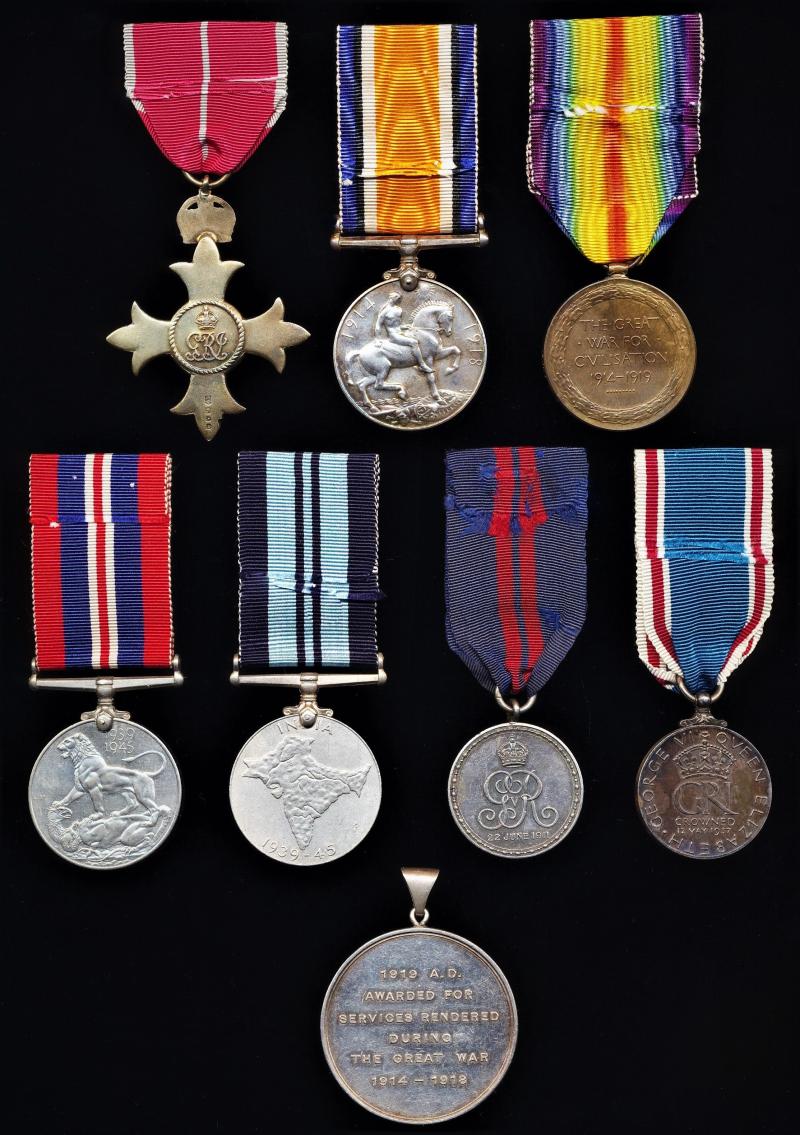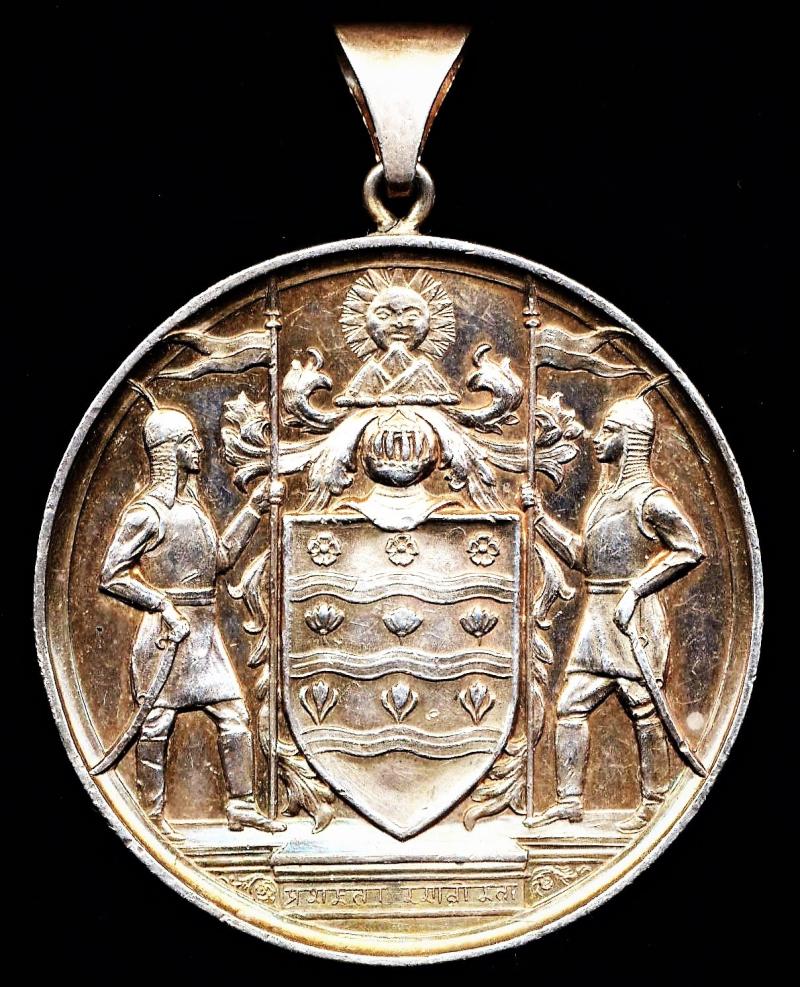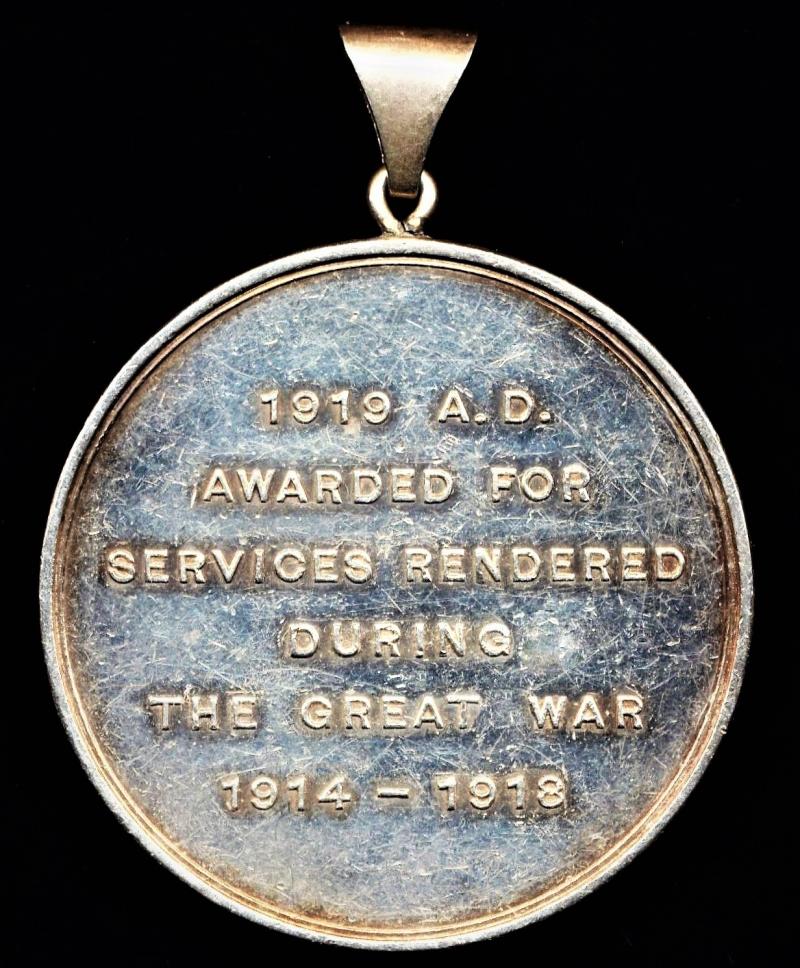A unique officer's medal group of 8: Lt-Colonel 'The Reverend' Alexander Francis Inglis, Chaplain to the North West Railway Battalion (A.F.I.), late attached Kashmir Imperial State Infantry, Gilgit & Chitral Scouts, & 1st Battalion 1st Gurkha Rifles
- Most Excellent Order of the British Empire (Mily). Officer's (O.B.E.) 1st type breast badge, H/M's for 1919
- British War Medal. Silver issue (Major A. F. Inglis. 1 Kashmir I.S. Infy.)
- Interallied Victory Medal. With MID Oakleaves emblem (Major A. F. Inglis. 1 Kashmir I.S. Infy.)
- War Medal 1939-45
- India Service Medal
- Coronation Medal 1911
- Coronation Medal 1937
- Jammu & Kashmir (Indian Princely State): War Medal 1914-18. Silver issue
Order of the British Empire (O.B.E.): The award was published in the London Gazette issue of 3 June 1919
Mention-in-Despatches: The award published in London Gazette issue of 5 June 1919, shown under 1st Gurkha Rifles as Acting Lieutenant-Colonel serving as Senior Special Service Officer attached to 1st Kashmir Imperial Service Infantry, the preamble to the award states;
Quote,
The following despatch has been, received by the Secretary of State' for War from General Sir E. H. H. Allenby, G.C.B., G.C.M.G., Commander-in-Chief, Egyptian Expeditionary Force:— . General Headquarters, 5th March, 1919. Sir, I have the honour to forward herewith a list of Officers, Nurses, Other Ranks and Civilians, whom I consider worthy of mention for their services during the period from the 19th September, 1918, to the 31st January, 1919. I have the honour to be,
Sir,
Your most obedient servant,
E. H. H. ALLENBY,
General.
Commander-in-Chief,
Egyptian Expeditionary Force
Unquote
Great War medals verification: On the outbreak of the Great War the recipient was serving as Commandant of the Chitral & Gilgit Scouts, he first entered a theatre of war Egypt, when he proceeded overseas as Special Service Officer attached to the 1st Kashmir Imperial Service Infantry, with which unit he became. for a period Commanding Officer, while serving with the Egyptian Field Force in Palestine. The campaign medals are confirmed per the below cited sources:
- Medal Roll: Ref WO 329 file series film piece 2386. Compiled & signed at Gilgit 05/09/1925 signed by Lt.Col Chattar Singh Officer Commanding 1 Kashmir Infantry
- Medal Index Card: Shown as Major Kashmir Inf I.A. (sic) Issued by Gov't of India with note 'Embs issued by India (this last a reference to his MID)
Note: The Medal roll shows service in theatre of war 11 February 1918 to 12 February 1919
Important: The above cited medal roll specifically cites that the medals to be inscribed named to 1st Kashmir Infantry - and an excessively rare, likely unique pair of campaign medal thus named to a British Officer
Jammu & Kashmir Medal: In addition to the British Great War campaign medals issued to qualifying service personnel of the state forces of Jammu & Kashmir, the Princely State sanctioned and awarded
their own medal for Great War service to qualifying personnel. The medals were issued in silver to officers and in bronze for 'Other Ranks'. No medal rolls for the Princely States medal are extant or accessible in the United Kingdom, and no medal riband was sanctioned for the Jammu & Kashmir Great War Medals which were all issued with a hinged clip suspension
The Reverend Alexander Francis Inglis was born at Murree, India, in 1881, the son of Colonel David William Inglis, 35th Sikhs, and was educated at Bedford School and the Royal Military College, Sandhurst. Commissioned Second Lieutenant in the South Lancashire Regiment in September 1901, he proceeded to India, where he served on attachment with the South Lancashire Regiment - as a necessary prelude prior to posting to an Indian Army regiment. Alexander transferred to the Indian Staff Corps the following year, and thence to the 17th Bengal Infantry, from which unit he was then posted to the 1st Battalion 1st King George’s Own Gurkha Rifles stationed at Dharamsala, Punjab, in 1904. In 1911, he was one of the Indian Army British Officers selected to join the Indian Contingent at the Coronation of the King George V - the King Emperor - for which he received the Coronation Medal. During the Great War he served in Chitral and Gilgit as Military Assistant and Commandant of Scouts 1914-17., before proceeding in 1918 overseas to Egypt as Senior Special Service Officer, 1st Kashmir Imperial Service Infantry, with the rank of Major. He subsequently, for a period, was in command of the 1st Kashmir Imperial Service Infantry when the battalion served with the Egyptian Field Force in Palestine. He participated in the final attack on Nablus with the 30th Brigade, and for his services he was Mentioned in Despatches (London Gazette 5 June 1919) and created an Officer of the Order of the British Empire.
Following the war Inglis took up a staff appointment as Commandant at Dharamsala Cantonment. In 1922, due to health reasons, he took his discharge from the British Indian Army, in which year he was appointed the rank of Lieutenant-Colonel. Alexander returned to the United Kingdom where he trained for the clergy and attended the Bishop’s College, Cheshunt and where he was ordained, becoming deacon in 1932, and priest in 1933
Alexander returned home to 'India', the land of his birth, and in succession became; Chaplain to St. Andrew and St. Oswald Churches, Lahore, Punjab; Military Chaplain at St. Martin's, Delhi Encampments; and Chaplain, North West Railway Battalion (Auxiliary Force India) 1937 to 1934. He was confirmed as Honorary Chaplain to the Forces 1946
Sold together with some copied research. In addition we will forward copies of the respective medal roll entry pages & medal index card by soft-copy email attachment to the buyer
An extremely desirable and unique combination of medals to a British Officer including medals named to the 1st Kashmir Imperial State Infantry
Condition: GVF
Code: 22883







